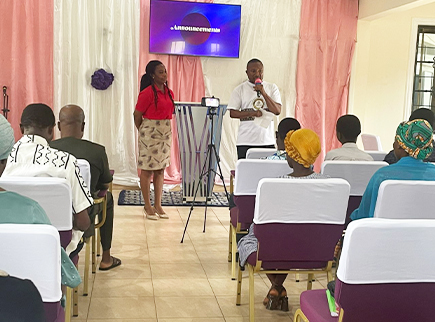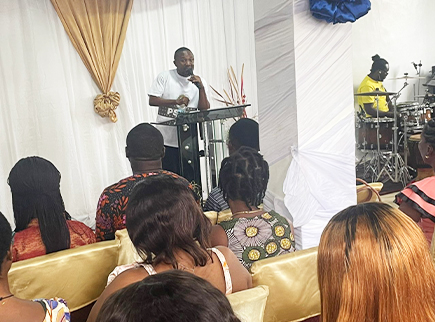The Ayawaso West Municipal Directorate of the National Commission for Civic Education (NCCE) has called on residents to make use of the Public Relations and Complaints Committee (PRCC) in addressing concerns related to the local assembly.
The call was made during a community engagement session at Deeper Life Ministry, Roman Ridge, Triumphant Assemblies of God Church, Dzorwulu, on the role of the PRCC in promoting participatory democracy and public engagement.
Mr. Edem Afeeva, the Ayawaso West Municipal Director of NCCE, stressed the importance of active civic participation and urged residents to approach the PRCC with issues that fall within the jurisdiction of the assembly.

Mr. Afeeva noted that the PRCC was mandated by law to serve as a platform through which citizens could lodge complaints or express dissatisfaction with the performance or conduct of the assembly and its officials, explaining that the committee played a vital role in promoting accountability and transparency within the local governance system.
He added that the committee also promoted transparency, probity and accountability in the dealings of the district assembly and investigates complaints or allegations made against the conduct of the district chief executive, members of the district assembly, staff of the district assembly and staff of the departments of the assembly, as well as performs other mandates that require a dedicated platform for full discussions.
He, however, clarified that the committee was not empowered to handle every type of complaint, as matters currently before a court of law, the Commission on Human Rights and Administrative Justice (CHRAJ), or other statutory bodies were exempt from the PRCC’s mandate.
Mr. Afeeva stated that “Section 26, Subsection (1) of the Local Governance Act 2016, Act 936 mandates every Metropolitan, Municipal and District Assembly to constitute a Public Relations and Complaints Committee (PRCC).”
The NCCE Director emphasised the need for residents to participate in public forums, town hall meetings, and other community programmes organised by the assembly, as such engagements were essential for residents to understand the operations of the assemblies and their roles in local development.

